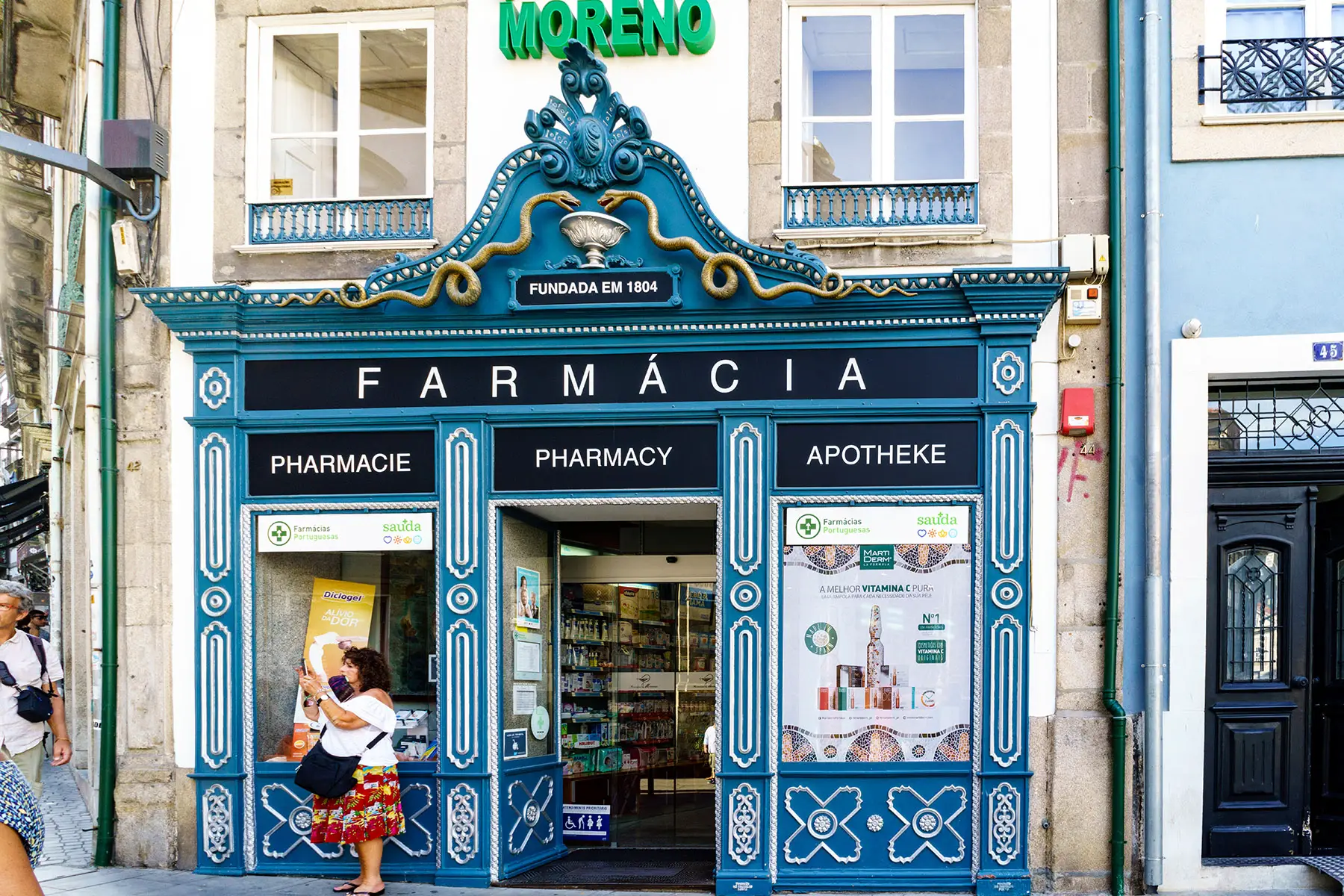Portugal’s mental healthcare system has improved significantly in recent years, with growing public awareness and expanded access to psychological and psychiatric care. Services are available through the national health system (SNS) as well as private providers, though wait times and availability can vary.
Public health insurance covers psychiatric care, while psychotherapy may require out-of-pocket payment or private insurance. For expats, multilingual professionals and nonprofit services are increasingly available.
Continue reading for more information on the following:
- How does mental healthcare work in Portugal?
- How to access mental health services in Portugal
- Insurance for mental healthcare in Portugal
- Psychologists, psychiatrists, and therapists
- Support for addiction in Portugal
- Services dealing with eating disorders
- Services for people with severe symptoms and long-term conditions
- Mental health services for children and young people
- Services for special groups
- Portuguese emergency support and crisis lines
- Useful resources
Cigna Global
Enjoy peace of mind while living in Portugal with Cigna Global’s long-term international health insurance plans (12+ months). Get tailored coverage, direct billing with many providers, complex case management, and global care on demand, with access to a network of 1.5+ million doctors, specialists, and therapists.
How does mental healthcare work in Portugal?
In terms of mental healthcare, Portugal provides a range of services as part of its public healthcare system, Serviço Nacional de Saúde (SNS).
The National Mental Health Program aims to promote the integration of mental healthcare into the SNS, both in primary and long-term care. It focuses on mental health promotion, mental illness prevention, treatment, and rehabilitation. It’s also intended to decentralize mental health services and ensure general access.

Generally speaking, mental health care services in Portugal are provided through:
- Local services
- Regional services
- Psychiatric hospitals
Firstly, local services constitute the base of the mental healthcare system in Portugal, providing essential mental healthcare in primary care units and hospitals (both inpatient and outpatient settings).
Secondly, regional services should support the local mental health services of the five Regional Health Administrations (or RHA) of Continental Portugal.
Lastly, psychiatric hospitals can also ensure mental health care services at the local and regional levels. Moreover, it offers long-term and specialist inpatient care to patients with serious mental health issues that have no family or social support.
The National Mental Health Program aims to improve patients’ life conditions, develop rehabilitation programs, promote home care, and support their reintegration into the community.
How to access mental health services in Portugal
If you’re an expat or foreigner registered as a resident in Portugal, you should have your healthcare user number (número de utente). It allows you to access health care services in any SNS institution, such as hospitals and local health centers (centros de saúde).
You need to schedule an appointment with your general practitioner (médico de família) to assess and refer you to a specialist or hospital if needed.

Within the primary health care system, mental health consultations and all complementary diagnostic and therapeutic methods prescribed by an SNS doctor are exempt from the co-payment fee (taxa moderadora). This includes:
- Clinical follow-up psychiatric consultations (both for adults and children)
- All consultations and procedures carried out under the Mental Health Act
Alternatively, you can schedule a consultation at a private clinic with a psychologist (psicólogo) or a psychiatrist (psiquiatra) to assess your mental health needs, provide treatment and support. Costs associated with this private care will depend on your personal insurance situation.
Insurance for mental healthcare in Portugal
Expats living in Portugal can benefit from free basic healthcare, as the SNS provides subsidized healthcare for anyone that contributes to the Social Security System (Segurança Social de Saúde). It covers the mainland of Portugal.
If you’re in the autonomous regions of Madeira or Azores, you can access healthcare through Serviço de Saúde da RAM or Direção Regional de Saúde, respectively.
For EU/EFTA citizens temporarily staying in Portugal, the European Health Insurance Card (EHIC) gives you healthcare access as you would enjoy in your home country. However, remember that this should only be used for urgent medical needs and should not replace your travel insurance.
Whenever it’s possible, Portugal allows patients with severe mental conditions to comply with their therapy in compulsory outpatient treatment instead of compulsory admission. In these cases, patients receive free psychotropic drugs from the SNS.
Additionally, there are health subsystems that finance health care for certain professions. One of the largest subsystems is ADSE which finances psychological and neuropsychological tests, clinical psychological consultations, and psychiatric hospitalizations. The amounts covered vary depending on the type of treatment. Of course, access to these health services will depend on your profession.

You can avoid long waiting lists often associated with the SNS by having private or international health insurance. Private cover can give you access to a wide range of specialties without needing a referral from your GP.
A few of the largest international health insurance companies in Portugal that offer mental health coverage as part of some expat plans include:
However, be sure to compare policies to ensure you find the right coverage for you and your family. For more information, read up on health insurance in Portugal.
Psychologists, psychiatrists, and therapists
Psychologists can perform assessments and interventions in the context of mental and psychological health issues. Unlike psychiatrists, they can’t prescribe any type of medication. Nonetheless, they can help you deal with difficult life experiences or situations. By law, they must register as members of the Ordem dos Psicólogos Portugueses.
Psychiatrists differ from other therapists in that they make medical diagnoses and treatment plans, both pharmacological and psychological. They must register as members of the Ordem dos Médicos.
On the Find a Way Out website, you can search for a psychologist in your area to schedule an appointment. However, if you want to search specifically for English speakers, you may wish to check out this directory, too.
Some health subsystems and health insurance providers co-pay for psychology consultations. This means that a part of their cost is reimbursed by the insurance company, depending on your coverage plan.
In private practice, a one-hour session costs between €40–100 (as of 2025), and you don’t need a referral from your GP. You’ll find the cheaper end of the spectrum in more rural areas or online, and the higher end in Lisbon and Porto. Generally, the sessions last around 50 or 60 minutes.
Support for addiction in Portugal
The Portuguese Ministry of Health created the Intervention Service for Addictive Behaviors and Dependencies (SICAD) to reduce the consumption of psychoactive substances, as well as prevent addictive behaviors.
Generally, the treatment of a person with addictive behaviors is available in different types of settings, namely outpatient, inpatient, drug addiction centers or CAT, and day centers. Depending on the patient’s needs, it can involve different interventions, such as pharmacological, psychological, systemic interventions, and social rehabilitation.

If you have private health insurance, you should check your coverage plan, as some may not cover rehab centers or treatment for drug addiction.
Here are some support groups available in Portugal:
- Grupo de Apoio aos Toxicodependentes (GRATO) – drug addiction support group
- Narcóticos Anónimos – support groups for those struggling with drug addiction
- Alcoólicos Anónimos – support groups for those struggling with alcohol dependence
Services dealing with eating disorders
There are a number of services available in Portugal for those facing challenges associated with eating disorders. These include anorexia, bulimia nervosa, and binge eating. Usually, the treatment requires a multidisciplinary approach, and there can be long waiting lists in the public sector.
For patients living with eating disorders, medication may be necessary, in association with psychotherapy. If you have private health insurance, it can cover some treatments, depending on your coverage plan.
There’s a support group for the families and friends of those dealing with eating disorders – Associação dos Familiares e Amigos dos Anorécticos e Bulímicos.
Services for people with severe symptoms and long-term conditions
If you’re experiencing severe or ongoing mental health challenges, Portugal offers specialized psychiatric services through hospitals and community clinics. In serious cases, you can seek voluntary admission to a psychiatric unit for more intensive care. To find the right facility, you can search for the Mental Health Service (Serviço de Saúde Mental) associated with your local hospital.
Portugal is also working to expand its network of community-based mental health services, moving away from long-term hospital stays and toward more integrated support within the public healthcare system. These services aim to provide ongoing care and rehabilitation in a more accessible and supportive environment, closer to patients’ homes and daily lives.
Mental health services for children and young people
If you’re concerned about your child’s mental health in Portugal, the first step is usually to speak with your family doctor or pediatrician, who can refer you to appropriate services. Public pediatric hospitals in Lisbon, Porto, and Coimbra have specialized child and adolescent mental health centers, where care is provided by psychiatrists, psychologists, and social workers.
In recent years, Portugal has also begun developing community-based mental health teams for children and adolescents. These teams provide multidisciplinary care, including psychological support, nursing, and social services, often in collaboration with schools and primary healthcare centers. Availability varies by region, and services are still expanding, so waiting times can be long.

Private and nonprofit options may offer faster access. For example, ENCONTRAR+SE is a nonprofit organization that provides psychological counseling for children and their caregivers, with a focus on emotional well-being, anxiety, and early intervention. Some international schools also offer access to in-house psychologists or counselors.
Services for special groups
Women experiencing domestic violence or mental health crises can contact APAV (Portuguese Association for Victim Support), which offers emotional support, legal help, and referrals to psychologists.
LGBTQIA+ individuals can find inclusive support through organizations such as ILGA Portugal, which offers free psychological counseling and peer support for queer youth and adults. Casa Qui focuses on LGBTQIA+ children and young people, especially those facing family rejection, bullying, or mental health challenges.
Portuguese emergency support and crisis lines
112 is Europe’s medical emergency number, and calls are free of charge.
You can find here the main emergency support lines:
- Linha Saúde 24 – you can call 808 24 24 24 in situations of illness -available 24/7
- Linha Criança Desaparecida – call 116 000 in case of missing children – available 24/7
- SOS Criança – children can call 116 111 to ask for help in urgent situations – available 24/7
Find out more Portuguese emergency numbers with our list.
Useful resources
- Association ENCONTRAR+SE – provides resources to improve and promote mental health
- Kit Básico de Saúde Mental – free online mini-course with essential information about mental health
- Portuguese Society of Psychiatry and Mental Health (SPPSM) – provides valuable information and guidance on mental health issues
- Levar a Saúde Mental onde ela não chega – Kids – provides mental health resources for children






